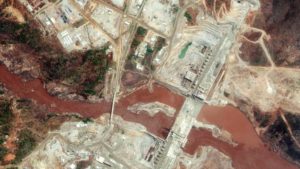
Yemeni citizens have been left almost completely resourceless after being caught in between the multiple external forces that have dragged the country’s people and land into a civil war.
Is there a price on life? As seen in the humanitarian crisis raging throughout the country of Yemen, it can be deduced that there is such a thing as a price on life. This concept is further explored through the political philosophy of libertarianism which discusses whether human beings own themselves or not, as well as through the ethical philosophy of utilitarianism which focuses on the calculated consequences of actions that produce the greatest amount of happiness to the greatest number of people. Both philosophies argue that people of a state should be able to have greater freedom of choice.
The idea of self-possession is also discussed, although to a different extent to the philosophies, in the Universal Declaration of Human Rights (UDHR) drafted by the United Nations. For this, it can be known that the question about a price on human life has been universally debated and that what is currently happening in Yemen demonstrates that Yemeni people have had essentially all their freedom taken away from them for economic gain.
In Yemen, the people have been neglected of their natural rights as a result of the takeover of the Yemeni government by the Houthis, a Zaydi Shia movement supported by the Iranian government, which led to political conflict involving the rebel group and a Saudi-led military coalition. In July 2014, the Houthi movement gathered individuals to protest the new authority in the Yemeni government, as they grew frustrated at the idea of higher fuel prices and new political order.
As a result of this dissent, rallies and clashes engendered the intervention of international powers and ultimately an outbreak of the disease cholera, a scarcity of medical resources, and a famine epidemic among the Yemeni people. The consequences of the conflict illustrate how external forces—foreign governments and political groups—have controlled the living conditions of the Yemeni citizens for their own political and economic gain, further proving how an economic value has been placed on the people of Yemen and the country itself.
Yemen is experiencing one of the largest humanitarian crises in the world. The country has yet to be reconstructed, leaving the lives of the Yemeni people at constant risk. Starvation amongst Yemeni citizens worsened as a total economic blockade implemented by the Saudi coalition inhibited foreign trade and the exportation of aid for relief efforts. Essential resources like food, water, and healthcare grew increasingly scarce, leading to the malnourishment of around 3.5 million and to the death of 131,000 citizens. With this, the idea of self-autonomy and natural rights has been unjustly denied due to the nature of the conflict.
Although the civil war has ended, Yemeni citizens witnessed the backlash of an inactive government even before the conflict and continue to experience the potent ramifications of it today. For this, Yemen has been in dire need of external aid, which is ironic as it is what caused the destruction in the first place. What is also ironic is how Saudi Arabia and the United Arab Emirates have provided billions of dollars toward the rebuilding of Yemen when they had played a role in its downfall. The abuse of power by outside nations in the country of Yemen highlights the limited freedom of choice and lack of representation the country’s citizens are coerced to endure.
Disregarding the battered conditions the country would be destined to be left in, external powers brought the people of Yemen into the middle of a war, emphasizing the already dwindling economic and political conditions that have dictated the lives of the citizens for years prior and likely years to come unless external humanitarian efforts intervene. Thus, the current state of Yemen illustrates how there is such a thing as a price on life.



